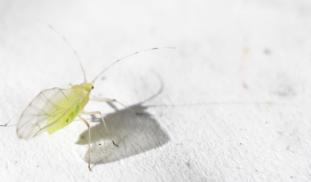Please wait...
About This Project
Ronin Institute
Long-distance electrical signals in plants are a key aspect of their physiology, but still remain a frontier in Biology. To understand this phenomenon, we need to make comparative studies that require data from several plant species. This project will contribute to understanding the diversity of long-distance electrical signalling in plants, while providing valuable information about the physiology of ferns.

Browse Other Projects on Experiment
Related Projects
Out for blood: Hemoparasites in white-tailed deer from the Shenandoah Valley in Northern Virginia
Our research question centers about the prevalence and diversity of hemoparasites that infect ungulate poplulations...
Using eDNA to examine protected California species in streams at Hastings Reserve
Hastings Reserve is home to three streams that provide critical habitat for sensitive native species. Through...
How do polar bears stay healthy on the world's worst diet?
Polar bears survive almost entirely on seal fat. Yet unlike humans who eat high-fat diets, polar bears never...


